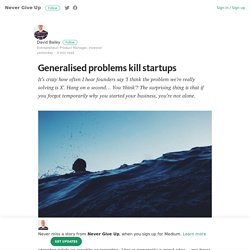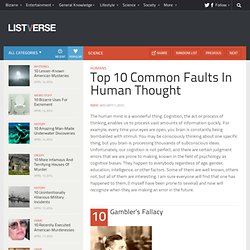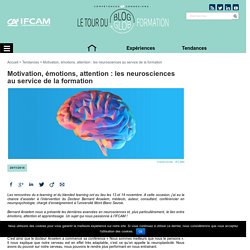

Do you trust me? Assessing Web credibility - The latest Voice of Customer and CX trends. Generalised problems kill startups. It’s crazy how often I hear founders say ‘I think the problem we’re really solving is X’.

Hang on a second… You ‘think’? The surprising thing is that if you forgot temporarily why you started your business, you’re not alone. Why it’s easy to forget the problem you’re solving As early-stage founders, it’s beaten into us that we need to deliver our elevator pitch as quickly as possible. This is generally a good idea — we have one mouth and two ears for good reason. We take all those problems and frustrations that motivated us to dedicate our lives to solving them and find a general theme. Generalised problems are toxic As you repeat a general problem over and again, most people will nod. But compressing a set of specific problems into a summary is like shrinking a photo into a thumbnail.
On the way to product-market fit, more specific problems within your general theme appear, and it’s easy to get confused about about which problems need solving and which do not. You Are Not So Smart. Does the Use of Information Technology in Education Encourage Cheating? - Community - Utne Reader. In The War on Learning (MIT Press, 2014) Elizabeth Losh examines current efforts to “reform” the use of information technology in education, particularly in higher education.

She finds that many technological solutions to educational problems fail because they treat education as a product rather than a process, and proposes six basic principles of digital learning integral to successful university-based initiatives. The following excerpt comes from Chapter 1, “What They Learn in College.” “GMA,” said the woman answering the phone on the opposite coast. The acronym was unfamiliar, so it took me a moment to realize that I had the right number for Good Morning America and was calling the correct person back from the popular ABC television show. Months before, I had written an item on my blog about the existence of online cheating videos, created by high school and college students, that demonstrate elaborate techniques designed to boost examination scores. Tim Jackson: Challenging the ‘Group Think’ of Mainstream Economists – Green European Journal. YouTube, Reddit, - the Ever-Tightening Orthodoxy of the Rabbit Hole click2x.
15 Styles of Distorted Thinking. Top 10 Common Faults In Human Thought. Humans The human mind is a wonderful thing.

Cognition, the act or process of thinking, enables us to process vast amounts of information quickly. For example, every time your eyes are open, you brain is constantly being bombarded with stimuli. You may be consciously thinking about one specific thing, but you brain is processing thousands of subconscious ideas. Unfortunately, our cognition is not perfect, and there are certain judgment errors that we are prone to making, known in the field of psychology as cognitive biases.
The Gambler’s fallacy is the tendency to think that future probabilities are altered by past events, when in reality, they are not. Reactivity is the tendency of people to act or appear differently when they know that they are being observed. Pareidolia is when random images or sounds are perceived as significant. Interesting Fact: the Rorschach Inkblot test was developed to use pareidolia to tap into people’s mental states.
Self-fulfilling Prophecy. The Science of Why We Don't Believe Science. Illustration: Jonathon Rosen "A MAN WITH A CONVICTION is a hard man to change.

Tell him you disagree and he turns away. Show him facts or figures and he questions your sources. Appeal to logic and he fails to see your point. " So wrote the celebrated Stanford University psychologist Leon Festinger (PDF), in a passage that might have been referring to climate change denial—the persistent rejection, on the part of so many Americans today, of what we know about global warming and its human causes.
Festinger and several of his colleagues had infiltrated the Seekers, a small Chicago-area cult whose members thought they were communicating with aliens—including one, "Sananda," who they believed was the astral incarnation of Jesus Christ. Motivation, émotions, attention : les neurosciences au service de la formation. Les rencontres du e-learning et du blended learning ont eu lieu les 13 et 14 novembre.

A cette occasion, j’ai eu la chance d’assister à l’intervention du Docteur Bernard Anselem, médecin, auteur, consultant, conférencier en neuropsychologie, chargé d’enseignement à l’université Mont Blanc Savoie. Bernard Anselem nous a présenté les dernières avancées en neurosciences et, plus particulièrement, le lien entre émotions, attention et apprentissage. Un sujet qui nous passionne à l’IFCAM ! Nous sommes meilleurs que nous le pensons C’est ainsi que le docteur Anselem a commencé sa conférence « Nous sommes meilleurs que nous le pensons ». Viewables. What Does It Take To Thrive At Work? Drive: The surprising truth about what motivates us [RSA Animate] Videos, articles, and tips to help you succeed, from the world's leading experts. Think with Google: Marketing Research & Digital Trends. Brain Spine. Heady Stuff.
Multiple Intelligences. Thinking Caps. Computeresque. Engineerable Feats. Netwise. SCIENCE Breakthroughs. Peopled Experiences. Time Well Spent. Eternity. Escapades. Mathematics IA: Birthday Paradox.